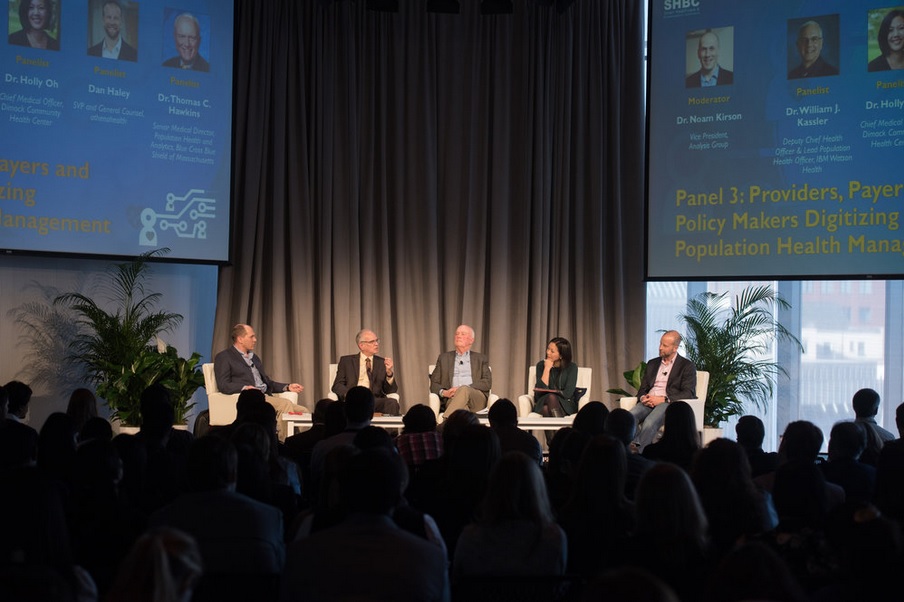 February 26, 2019 – It was announced today that OculAR was awarded a second-place prize of USD $4,000 in the annual MIT Sloan Healthcare Innovations Prize competition.
February 26, 2019 – It was announced today that OculAR was awarded a second-place prize of USD $4,000 in the annual MIT Sloan Healthcare Innovations Prize competition.
The event, which is open to entrepreneurial students from Boston-area colleges and universities, featured eight finalist teams pitching their healthcare innovations to a group of judges and an audience at MIT Sloan’s Wong Auditorium.
OculAR is building a virtual reality headset capable of conducting remote eye exams on patients and sending 3D video summaries of the exams to doctors for analysis.
“Worldwide, there are 276 million cases of blindness or severe vision loss, and fortunately 223 million of those cases are preventable or treatable. The problem is that, in order to prevent or treat [the problem], you first have to diagnose it,” OculAR team member Grayson Armstrong, MD., the Ophthalmology Chief Resident at Massachusetts Eye and Ear Hospital, told the audience. “Today, ophthalmologists use a slit lamp. It’s a bulky machine, where the patient and the doctor have to be co-located in the same room, and it really limits the ability to get this technology outside of the clinic and into the rest of the world.”
The company’s prototype uses a proprietary illumination and imaging system to offer the same functionality of a traditional slit lamp, with no moving parts. The data it gathers could also be used for future artificial intelligence-driven diagnostics.
The OculAR team has begun securing strategic partnerships and is working to begin validation trials in the Boston area.
Student team Umbulizer won the first place prize of $20,000 to help address that problem with a device it claims can help 90 percent of patients struggling to breathe, at a fraction of the cost of traditional ventilators.
The annual pitch competition is run by the student-run MIT Sloan Healthcare Club and is part of the Sloan Healthcare and BioInnovations Conference that was held on February 22.
The conference brings together members of the local healthcare ecosystem including academics, investors, government officials, and leaders in the private sector to discuss some of the most pressing issues and promising developments in the healthcare sector. This year’s theme explored the impact of digitalization on the industry.
A little over 40 teams applied to this year’s competition, but only eight teams earned the right to pitch in the finals. Each team had five minutes to give their presentations, which were judged based on five categories including the solution’s impact, novelty, market opportunity, feasibility, and traction.
The competition marked the end of a full week of support for finalists, which included networking opportunities, office hours with local venture capitalists, and workshops on skills such as delivering a successful pitch.
“A lot of the applicants are early stage, so they may have a great idea, but maybe their business model isn’t fully worked out, or they would like more practice in delivering a successful pitch to a diverse audience,” said Jasmine Kang, an organizer of the competition and a Sloan MBA candidate.
Article updated May 27, 2019.
Image credit: MIT
About the author
Sam is the Founder and Managing Editor of Auganix. With a background in research and report writing, he has been covering XR industry news for the past seven years.
